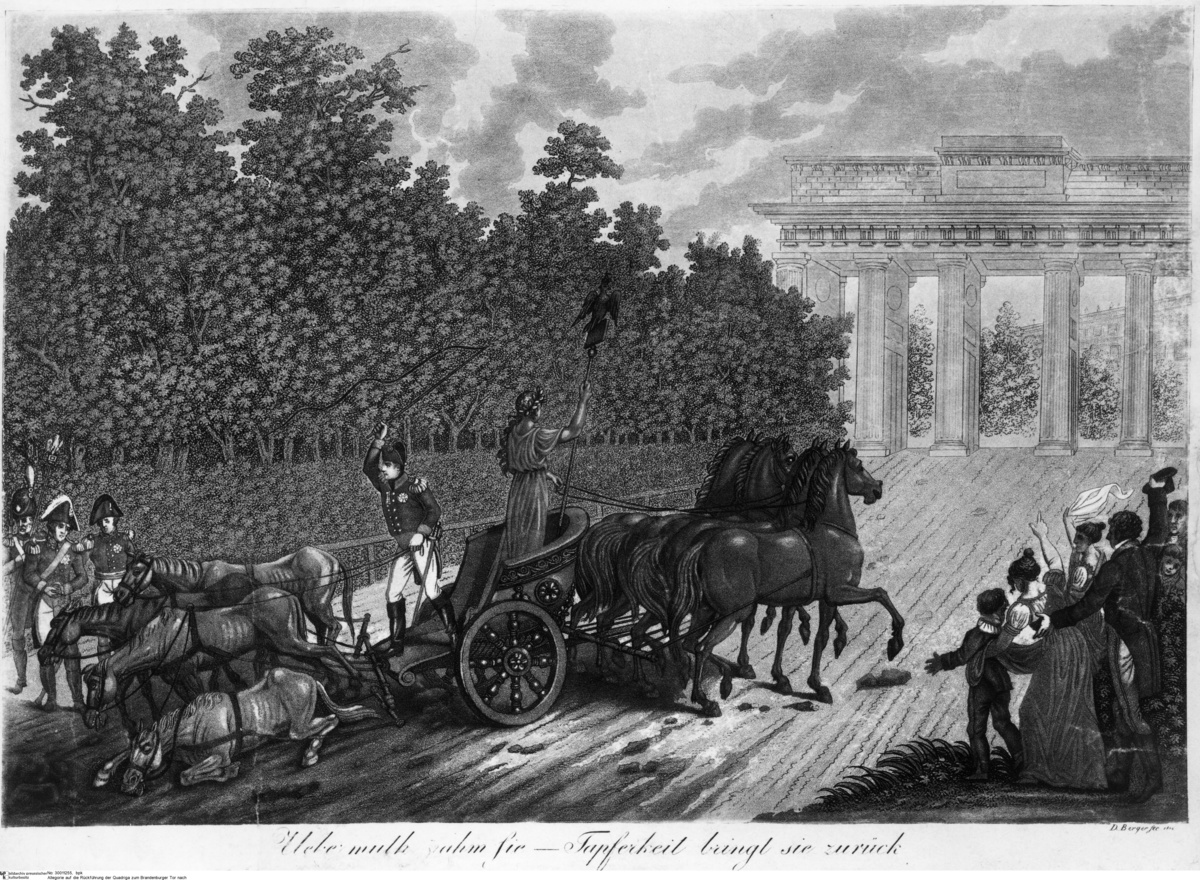Abstract
After the Battle of Jena-Auerstedt and the occupation of Berlin in
1806, French troops removed the Berlin Quadriga – a bronze sculpture of
a four-horse chariot steered by the goddess of victory –from its perch
atop the Brandenburg Gate and shipped it to Paris. When allied forces
entered Paris in 1814, Prussian troops under General Gebhard Leberecht
Blücher (1742-1819) discovered the sculpture in the Louvre, still packed
in crates, and returned it to Berlin. This image is an allegorical
depiction of the recovery of Prussia and the downfall of France: while
Napoleon attempts, in vain, to drive his faltering team of emaciated
horses away from Berlin, the goddess of victory guides the Quadriga back
toward the Brandenburg Gate. An enthusiastic bystander points up to the
place where the sculpture belongs. The caption reads, “Arrogance took
her away – bravery returns her” [“Übermuth
nahm sie – Tapferkeit bringt sie zurück”].
